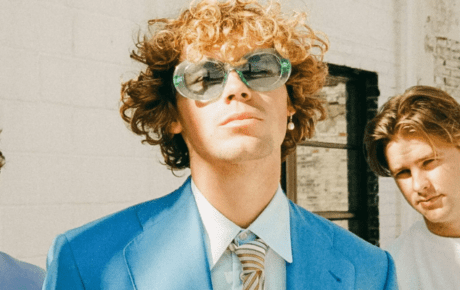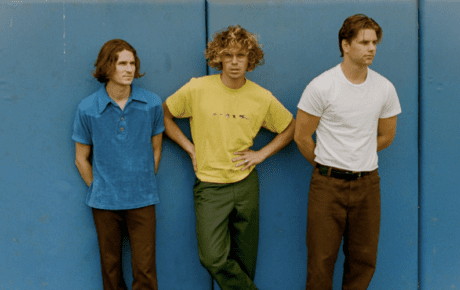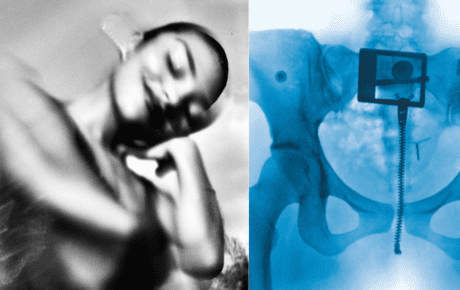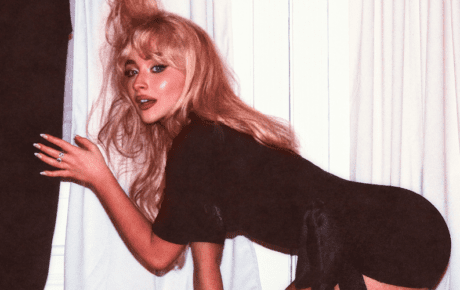*Spoilers ahead*
A biopic about the man behind the unity of a nation at a time of turmoil, and a story that perhaps the world needs right now too, Bob Marley: One Love emerged on the big screen on Valentine’s Day 2024.
Kiwis have adored Bob for many years, and we seem to have a real connection with his music. So naturally, the vibes were rife with anticipation for this film. The movie is centred around Bob Marley’s ultimate rise from Jamaica to the rest of the globe. The film begins in 1976, with Bob already an established figure of importance in Jamaica. The narrative broadly follows Bob’s personal experience with the conflict and civil unrest in the Caribbean nation, having come face to face with a shooter who attempts to take his life along with other bandmates during a routine rehearsal. Bob Marley and The Wailers were due to play a free concert in the capital of Kingston, to unite the two polarising political views at the time. The event was quoted on screen to have ‘changed his life forever’. Bob Marley leaves Jamaica for London, to go inwards and find the tone that will hopefully bring the people of his home country together. The film then essentially chronicles the development of the seminal album Exodus which was eventually released in 1977, and how his relationship with the admirable Rita Marley grows.
The film’s soundtrack is roots of reggae at its best, with all the classic hits, along with deeper cuts to be appreciated. When the first few scenes unveil the uncertain geopolitical state in Jamaica, we are served the bashful ‘Get Up, Stand Up’, which explicitly sets the tone for uncertainty with its unsettled rhythm section and vocal calls to stand up for our collective human rights. This is a great song to kick things off, as it ensures the energy is there for the audience to engage with. It’s familiar, and a driving force of reggae dub which hallmarks the foundation of the genre. Its ‘Roots, Rock, Reggae’ and ‘I Shot The Sheriff’ which backup this hearty start to the soundtrack, to remind the audience about the sounds that initially echoed out of Jamaica, introducing the world to this distinct style.
A lot of the time during this film, the music directly reflects what is happening on screen. ‘No Trouble’ is a deeper cut that is overlaid during a moment of gathering with some Rastafarians following the devastating shooting, which resulted in Rita’s life being threatened by a near miss. The song is a plead for peace but has a dark undertone. The placement of the song essentially transitions us to the new chapter in London, to try produce something different, something with a greater efficacy for change in Jamaica.
‘Natural Mystic’ is the first song in which we get glimpses into how a particular song came to be, during the sessions that would become Exodus. The movie documents Bob emotively musing about the times, how it feels like there is a mystic energy about, that is perhaps the catalyst for change. The band comes together in a studio in London and attempts to put bars to the lyrics. Bob expresses his dissatisfaction and feels that The Wailers are not seeing the bigger picture of their musical task and essentially challenges the team to pull out a different sounding song to what they usually play. The new guitarist, Junior Marvin joins the group, to help find these new sounds. The result with ‘Natural Mystic’ is a nuanced R&B number which sets the tone for the entire Exodus album and was aptly placed as the opening song on the track-listing. But it’s the development of the title track that really hits the spot with this film.
‘Exodus’ is coined following The Wailers listening to a movie soundtrack for a film of the same name. The grandiose nature of the orchestral score, led Bob’s desire to make his stand through a similar aesthetic. The band jams then and there, in their accommodation, improvising rhythm and melody to create something that morphs into a crystal-clear message for the people. The song allows Junior Marvin to embellish moments in such a way that it creates a mesmerising effect. Paired with the percussion specialities of The Wailers, and unique horn section, and you have a bold statement drawn over 7 minutes. Songs like these are so good with cinema quality speakers, so it would be highly recommended to see this film in theatres, for the way that these songs are able to take the space needed for their enveloping rich sounds.
Rita Marley is one of the most important figures in this story, and the film’s script does a great job at ensuring this appears so. As Bob’s wife, and bandmate, Rita is a grounded and reassuring character, whose influence on Bob cannot be underestimated. Rita was there from the early days, as we are shown flashbacks to when they met as adolescents, their romance blossoming. There is a particularly tender scene where a young Marley strums along to a barebones early cut of ‘No Women, No Cry’, which is then mirrored later in the film with the fully fledged live take. The final cut is played in a particularly emotive moment, following a rare showing of conflict between the two lovers, Rita expressing her frustration at Bob’s imminent rise and feeling unappreciated. The live version showcases Bob walking over to theatrically embrace the backup singers including Rita, signing the title line, visibly feeling the expectation of the image that she is to uphold. This moment alone, was one of the most authentic during the film, and is not to be missed for its key story arc position.
Following the sudden rise to fame, Bob grapples with the forces that accompany such notoriety, and Rita’s reaction to all of this, flicked a switch for Bob, who realised he’d briefly lost sight of the whole point himself. Another intimate moment we are gifted is when we learn of Bob’s skin cancer diagnosis and his decline for treatment, for he feels his mission to bring peace cannot wait. When Rita comes home and confronts him about this news, Bob expresses his struggle with the ability to find peace for others, when he can’t even get peace for himself. It’s a raw moment, and for this insight, you can’t help but appreciate the dominant sentiment with Bob Marley’s catalogue, even more. This brings us to the triumphant return to Jamaica.
The return is met with many moments of significance, including reuniting with Bob’s children, and other family, as well as the gunman who attempted to assassinate Bob, who turns up to his house to seek forgiveness and redemption. Marley shows great compassion for the young man, and again, highlights his humility as a person. But it’s the acoustic and casual performance of ‘Redemption Song’ by the open fire, that sits heavily with the audience, for its importance cannot really be expressed so succinctly. The song ruminates about redemption and how anyone can find such resolution within their own understanding of their wrongdoing. It is a song of hope essentially, acknowledging and encouraging the capacity to do good, to right wrongs, and find reason. Rita asks Bob when he wrote the song, with a tear cascading down her cheek. Bob eloquently responds with “All my life” and laughs. You can’t help but smile at the honest remark, it feels so relatable, in that we all have this endearing desire to leave legacy. And the film begins to draw close, to solidify the artist’s legacy indicatively, without the need to end the film dramatising his death.
A return concert in Jamaica showcases Bob in his prime, and we finally hear ‘One Love’ for the first time. This song represents the epitome of the movement and the message, for which Bob Marley & The Wailers were known. It’s a timeless classic, and the message rings so true. The film cuts short before too long into the song, and we are then shown actual footage of the two Jamaican political leaders of the time uniting on stage. It’s a heart-warming cut back to reality, grounding the audience, reminding us, that this really happened. A super denotes the tragic end of Bob’s life, but also explains the legacy that was left, supported by a montage of the band’s historic performances and appearances.
Bob Marley: One Love allows us to get a better understanding of the kind of man Bob Marley was and develop a greater understanding for his ever-relevant message of compassion, connection, unity, justice, freedom, and love. The music is what connects us, and it’s such a timely reminder of our shared humanity. Of course, there is a special place for Bob Marley’s music for New Zealanders, as much of Kiwi music has similar sentiment, cultural alignment, and not to mention sound. When you think of artists such as L.A.B, Fat Freddy’s Drop and The Black Seeds (just to name a few), it seems obvious that their foundations have been inspired or influenced by Bob Marley. A feel good at heart, this film isn’t one to be missed by the classic music buffs out there!












